
LA PAZ, Jul 12 (IPS) – They haul many kilos of recyclable supplies on their backs however obtain little in return. These Bolivian girls who assist clear up the setting from daybreak to nightfall are preventing for recognition of their work and social and labor rights.
The inhabitants of La Paz, Bolivia’s political heart, stroll hurriedly and virtually oblivious to the ladies of various ages silently opening heavy lids of municipal rubbish dumpsters which might be taller than the ladies themselves.
They use a selfmade software, a form of hook with a protracted wood deal with, to dig by means of the unsorted waste, making an attempt to keep away from getting lower by damaged glass, and in the hunt for plastic containers, paper, cardboard or aluminum cans.
Individuals stroll by on the avenues and squares with out them, and generally actively avoiding them. The recyclers really feel this indifference and even rejection, however they overcome it with the braveness gained over years and generations, convincing themselves that they’ve a dignified vocation.
“Individuals name us soiled pigs (cochinas), they humiliate us and we will by no means reply,” says Rosario Ramos, a 16-year-old who accompanies her mom, Valeriana Chacolla, 58, sorting by means of the trash for recyclable waste.
A examine by the United Nations Joint Program on self-employed girls staff within the nation describes them usually as being “of indigenous origin, adults with main college schooling. Seventy p.c of them are additionally concerned in actions associated to commerce, whereas 16 p.c work within the manufacturing trade.”
Of a inhabitants of 12.2 million projected by the National Institute of Statistics for the 12 months 2022, 5.9 million are girls. La Paz is house to 1.53 million individuals.
Of the full inhabitants of this Andean nation, 41 p.c outlined themselves as indigenous within the final census, whereas in keeping with the newest official knowledge accessible, 26 p.c of city dwellers stay in reasonable poverty and seven.2 p.c in excessive poverty, together with many of the casual recyclers.
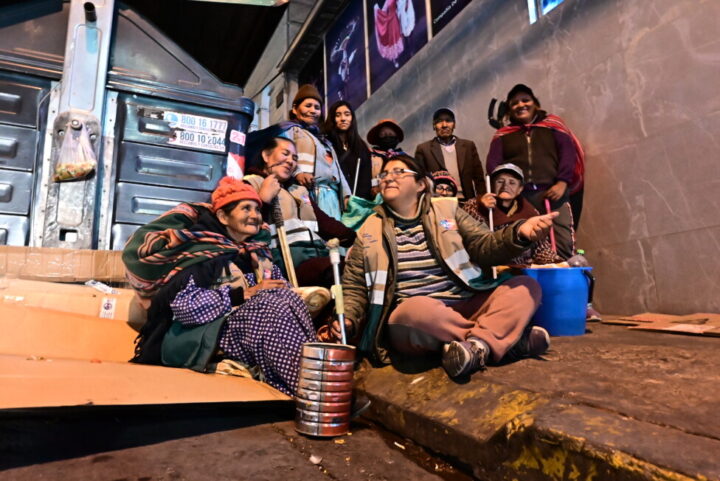
On this southern hemisphere wintertime July night time in La Paz, the group of ladies are nearly invisible as they collect across the dumpsters positioned in a nook of the Plaza Avaroa, within the space of Sopocachi, the place residential and public workplace buildings are interspersed with banks, supermarkets and different companies.
It is a good place for selecting by means of the waste within the dumpsters, and the ladies discover paper, newspapers, plastic and aluminum containers. Though the amount of waste is massive, every one of many rubbish pickers manages to gather no a couple of or two kg on one of many days that IPS accompanied totally different teams of the ladies of their work.
The silence is damaged on some events when salaried municipal cleaners present up and throw the ladies out of the place, as a result of in addition they compete to acquire supplies that they then promote to recyclers. This can be a second when it turns into particularly clear that rubbish has worth.
That’s one in all a number of causes that compelled the casual rubbish pickers to come back collectively in an affiliation referred to as EcoRecicladoras de La Paz. “There isn’t any work for us, they usually solely hearken to us after we set up,” says María Martínez, 50, the recording secretary of the 45 members, who additionally embrace just a few males.
In Bolivia, trash just isn’t separated into reusable and non-reusable waste in properties or workplaces. This job is carried out by non-public recycling corporations, who purchase the uncooked supplies from casual waste collectors similar to EcoRecicladoras.
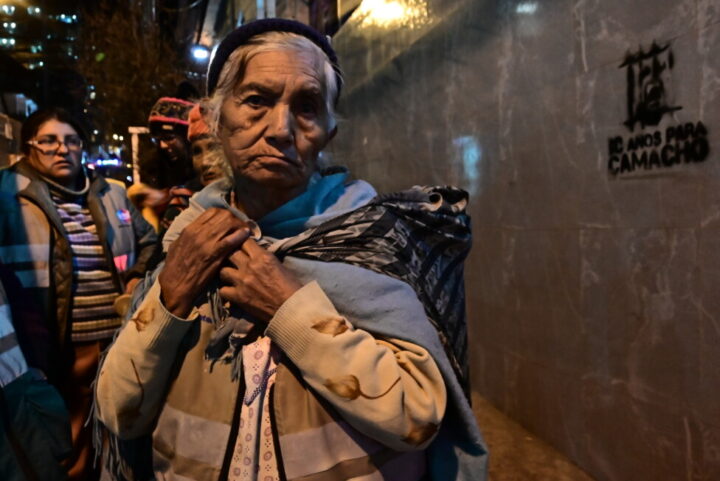
Martínez, with barely graying hair, says she comes out each night. “I used to be a home employee till I used to be 30 years outdated. When my daughter was born I could not get a job. I collected plastic bottles, garments and sneakers and offered them to the factories, however the recycling corporations who pay actually low costs emerged,” she complains.
It takes about three months between the preliminary assortment and the ultimate sale of the recyclable supplies. Martínez collects the supplies, carries round seven kg on her again, walks about three kilometers and patiently shops them till she has sufficient to promote them to the wholesaler.
“One 12 months I collected 200 kg of scrap steel and offered it for 150 bolivianos (about 20 {dollars}),” she remembers. The recycling corporations need to purchase by the ton, she explains, with a smile, as a result of it’s unimaginable for them to achieve that quantity.
She represents a second technology of rubbish collectors. Her mom, Leonor Colque, is 2 years in need of turning 80, and has been combing by means of rubbish dumps and trash on the streets for 40 years. On her again she carries a material during which she hauls a lot of items of paper and a few plastic waste.
“They need to keep in class as a result of this job just isn’t for younger ladies,” she recommends, sadly, as a result of she couldn’t obtain her aim of sending one in all her daughters to a instructor coaching college.
At 58, Chacolla, like virtually all girls rubbish pickers, is the top of her family. Her husband, a former public transport driver, misplaced his job resulting from well being issues and sometimes works as a welder, door-maker or bricklayer.
When she goes out to kind by means of trash she is accompanied by her daughter, Rosario, who explains and expands on what her mom says, calling for a change within the public’s angle in the direction of them and respect for the work they do as dignified, emphasizing, as all of them do, that they cope with recyclable waste, not rubbish.
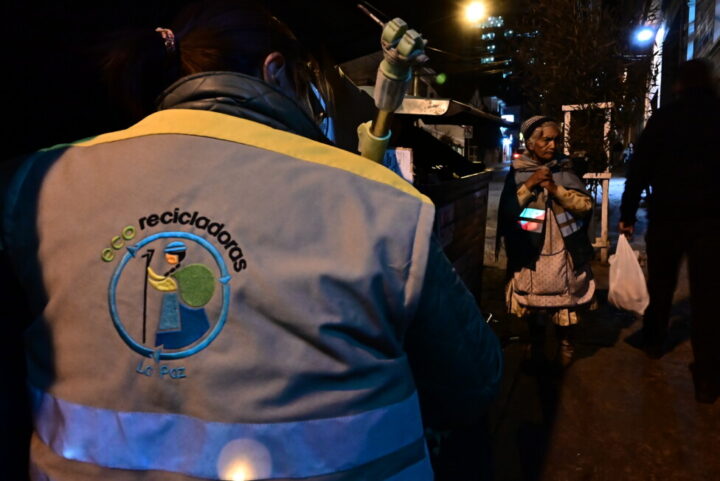
“I stroll with the Lord in my coronary heart, he at all times helps me,” says Angelica Yana, who at 63 years of age defies the risks of the wee hours of the morning within the Achachicala space, on the outskirts of La Paz, 5 kilometers north of the town.
“Nothing has ever occurred to me,” says Yana, who leaves her house at three within the morning to scrape up sufficient to help a son who presents tremendous ending masonry providers, and her sick husband.
On the age of 70, Alberta Caisana says that she was assaulted by municipal cleanup staff whereas she was scrounging for recyclable supplies. She now carries a credential issued by the Environmental Prevention and Management Directorate of the Autonomous Municipal Authorities of La Paz, and wears a piece vest donated by growth assist companies from the governments of Sweden and Switzerland.
She depends on her uniform and identification card as symbols of safety from the indifference of the individuals and aggression from native officers.
The mom of a daughter and the top of her family, Anahí Lovera, noticed her want to proceed her college research pissed off, and on the age of 32 she combines accumulating plastic bottles with serving to in several duties within the development of homes.
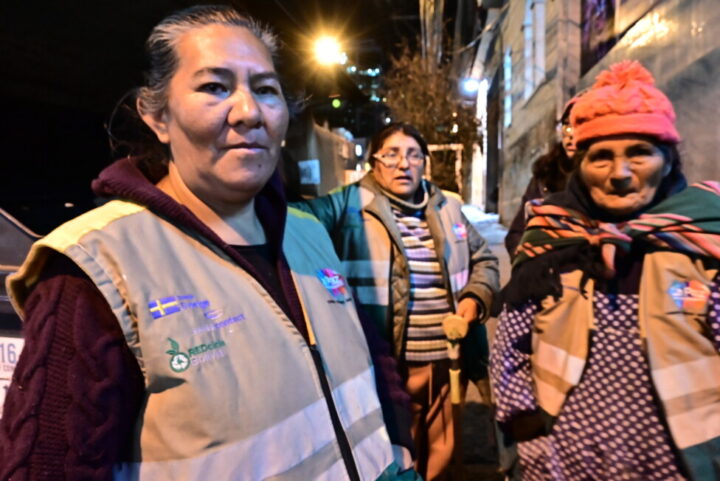
Others, they are saying, promote garments and different recovered objects in road markets, such because the well-known one in Villa 16 de Julio within the neighboring metropolis of El Alto, the place used and new objects are offered in an space overlaying two kilometers.
Lovera’s work seems to go easily, however she and her colleagues describe the second of coping with the consumers. They ship a precise quantity and weight of merchandise and the consumers declare a decrease weight with a purpose to pay much less.
“This sector is not seen by society, particularly as a result of we work with waste, that’s, with what society throws away; this work is ‘devalued’,” Bárbara Giavarini, coordinator of Redcicla Bolivia-Reciclaje Inclusivo, informed IPS.
One signal of the general public’s recognition of the “grassroots recyclers,” as they name themselves, could possibly be the direct, sorted supply of the waste, which might facilitate the ladies’s work, she mentioned.
Redcicla, a platform that promotes the built-in therapy of waste, has been serving to since 2017 to prepare them and produce visibility to their work, whereas fostering the supply of waste from residents to “grassroots recyclers” and dealing for the popularity of their work as dignified.
The president of Ecorecicladoras de La Paz, Sofía Quispe, helps the thought of getting assist from native residents in sorting supplies and delivering them to their associates, as an alternative of throwing them into dumpsters the place they’re combined with merchandise that stop subsequent recycling.
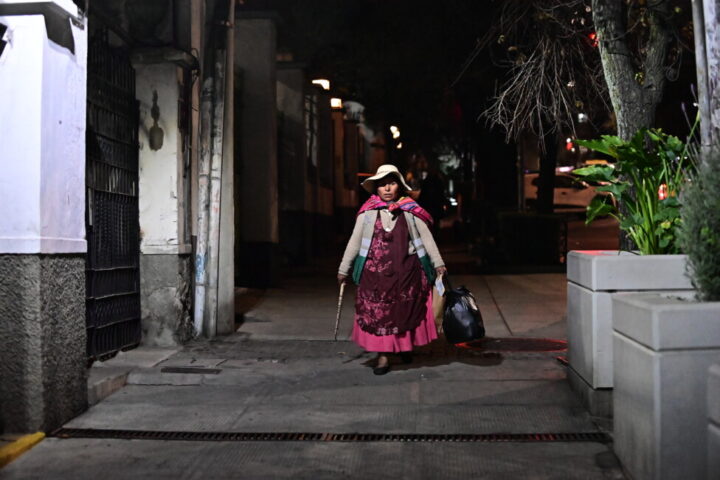
Quispe is a 42-year-old mom of three. Like most of her fellow recyclers, she walks about two kilometers on foot in the hunt for dumpsters, dressed within the customary indigenous wide-brimmed hat and pollera or skirt.
On the night time that IPS accompanied her, she didn’t discover the dumpster that was often on Avenida 6 de Agosto, in all probability as a result of it had been eliminated and brought to a different a part of the town.
The impoverished rubbish picker was as soon as a talented seamstress who labored in small family-owned factories within the Brazilian metropolis of São Paulo. Upon her return resulting from an sickness, she was unable to lift the cash she wanted to purchase a machine and uncooked supplies.
She was additionally discouraged by the dearth of curiosity amongst native residents in shopping for clothes made in Bolivia, as they most popular low-cost clothes smuggled into the nation as contraband.
Leonarda Chávez, one other 72-year-old head of family, who collects recyclable supplies on daily basis together with her daughter Carla Chávez (42) and granddaughter Maya Muga Chávez (25), feels glad as a result of she will be able to see her dream come true.
This month, her granddaughter earned a diploma in Enterprise Social Accountability, with which she accomplished her college schooling, along with a level in business engineering and enterprise administration, in a rustic the place increased research don’t at all times assure good jobs.
Among the many darkness and the objects discarded by individuals, hope can also be alive. Rosario Ramos took the teachings of exhausting work and created her personal aim: “I’ll examine superior robotics and prosthetic meeting,” she says with a confidence that contrasts with the group’s unhappy tales.
© Inter Press Service (2023) — All Rights ReservedOriginal source: Inter Press Service

